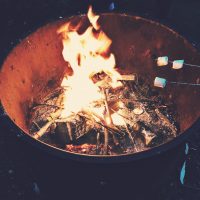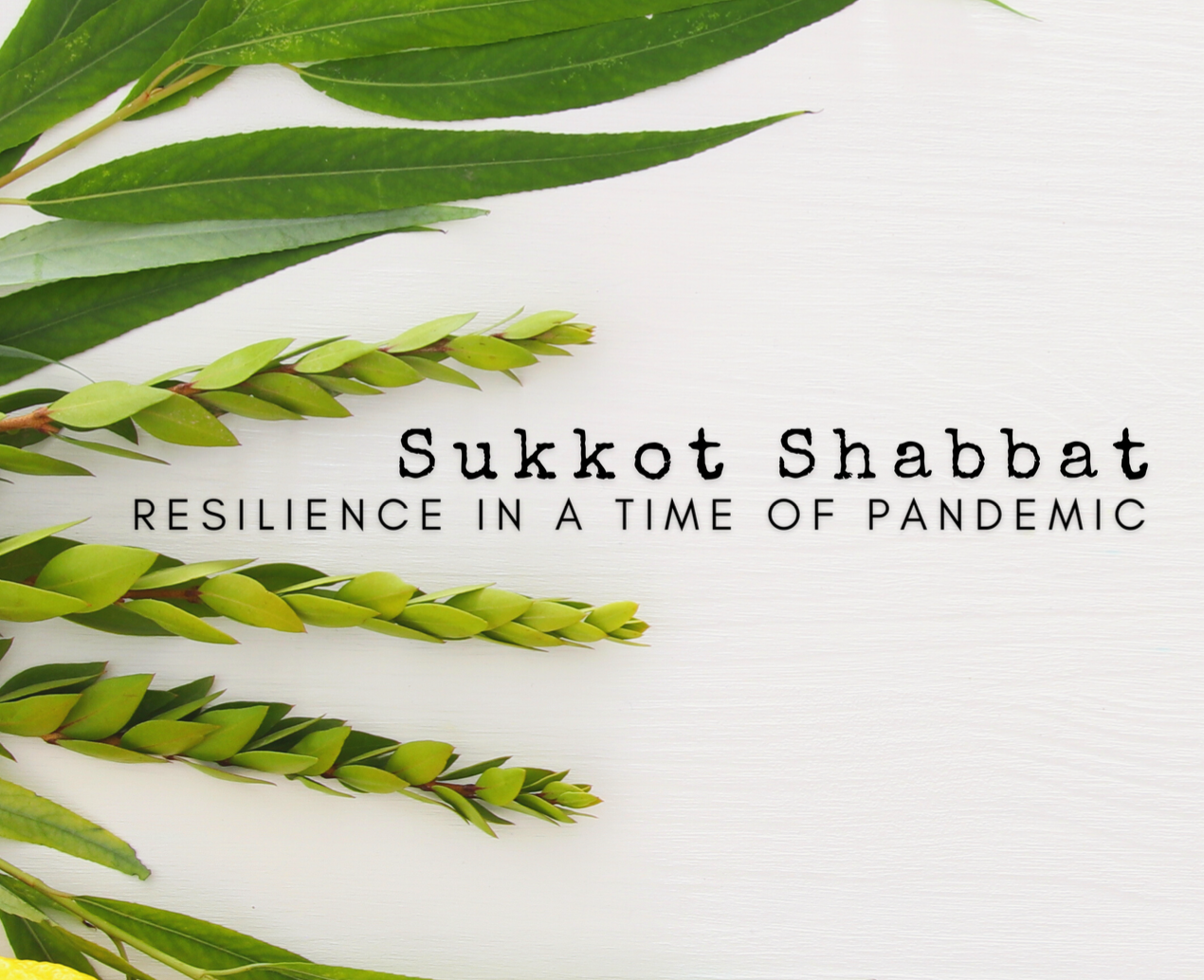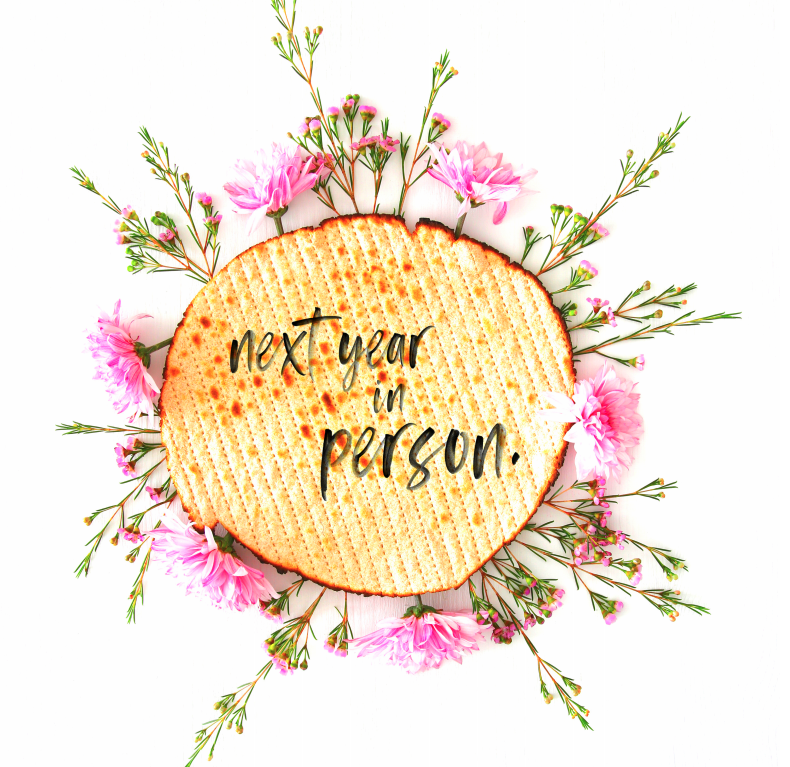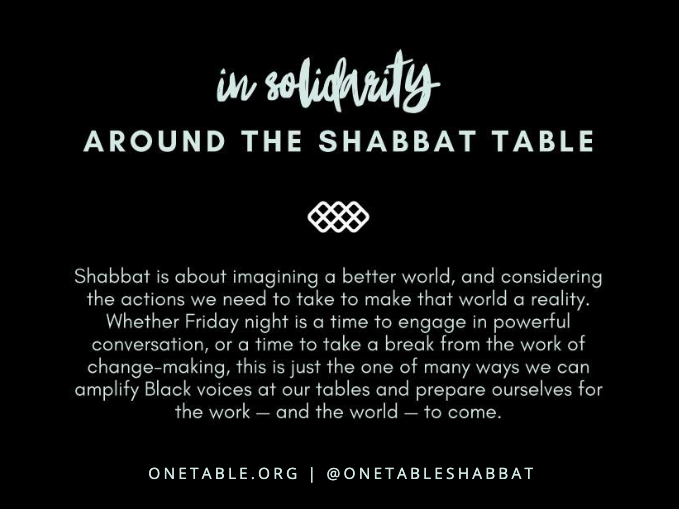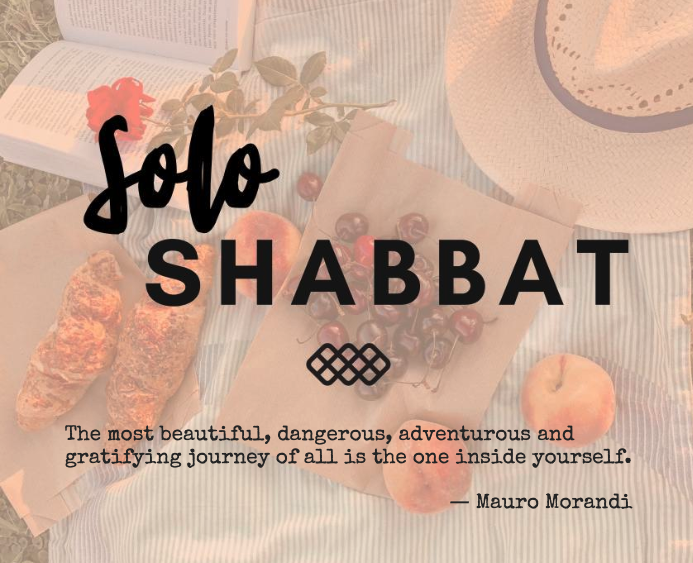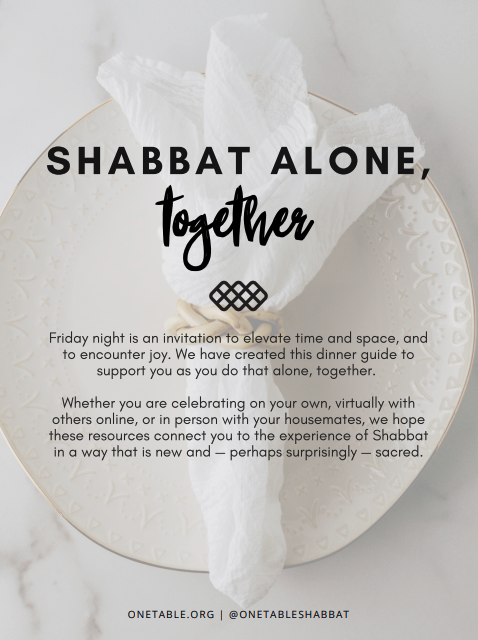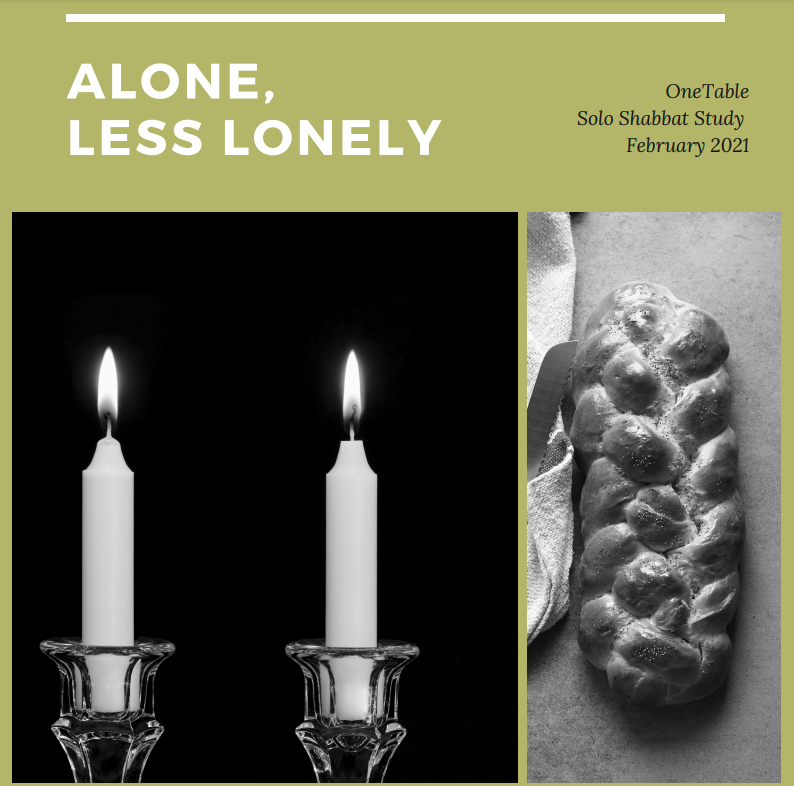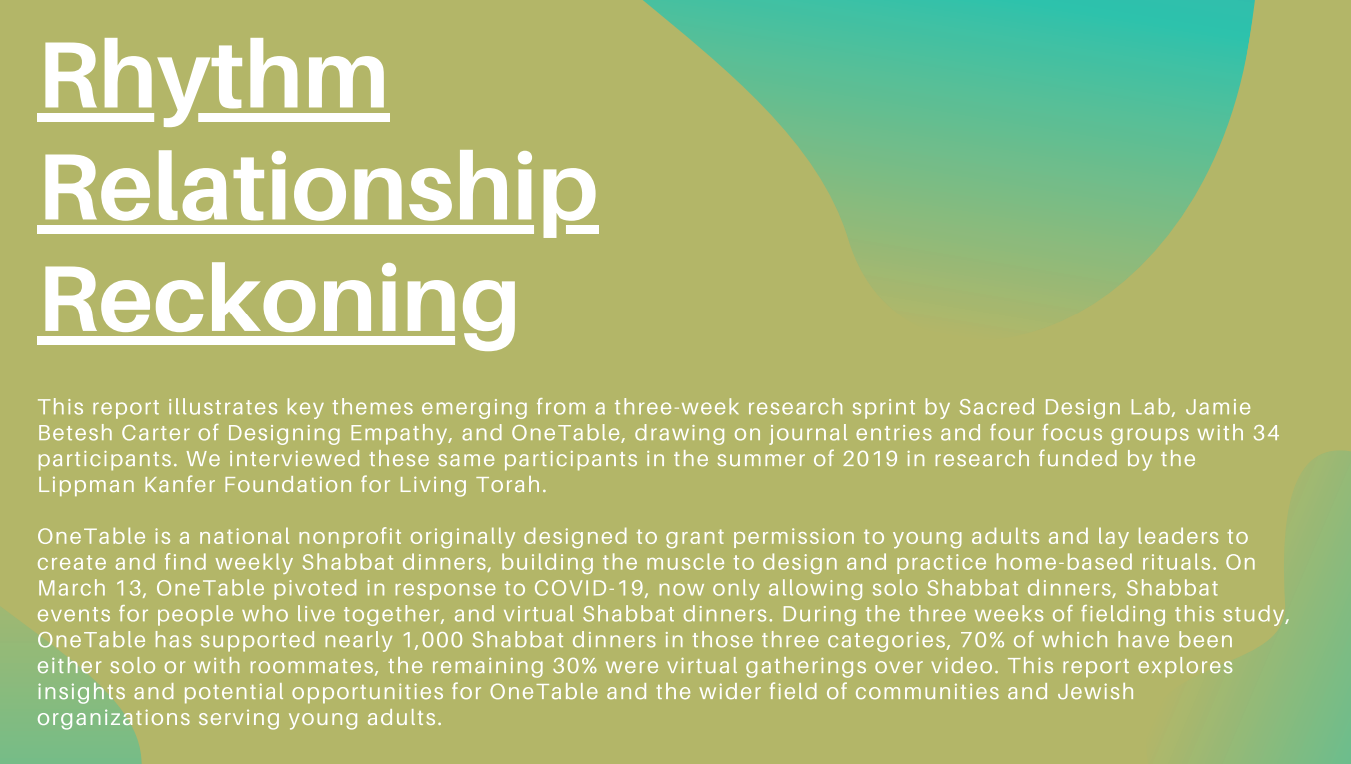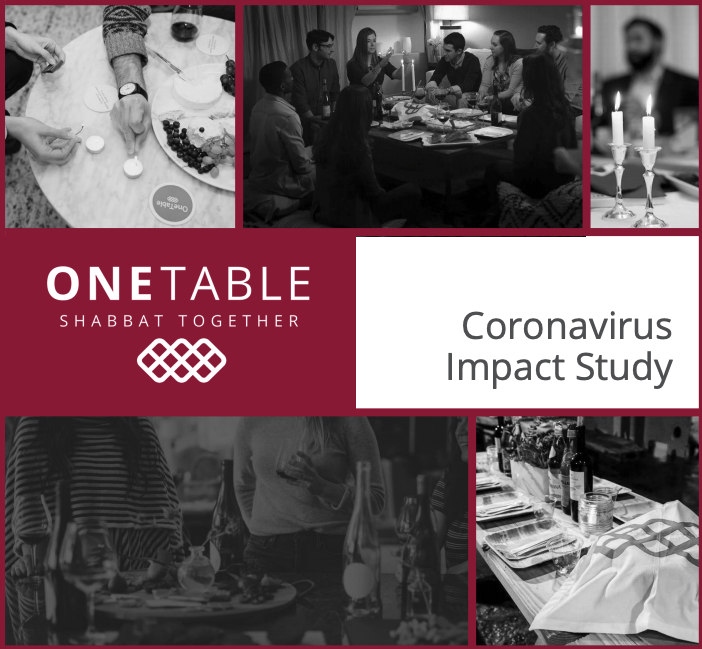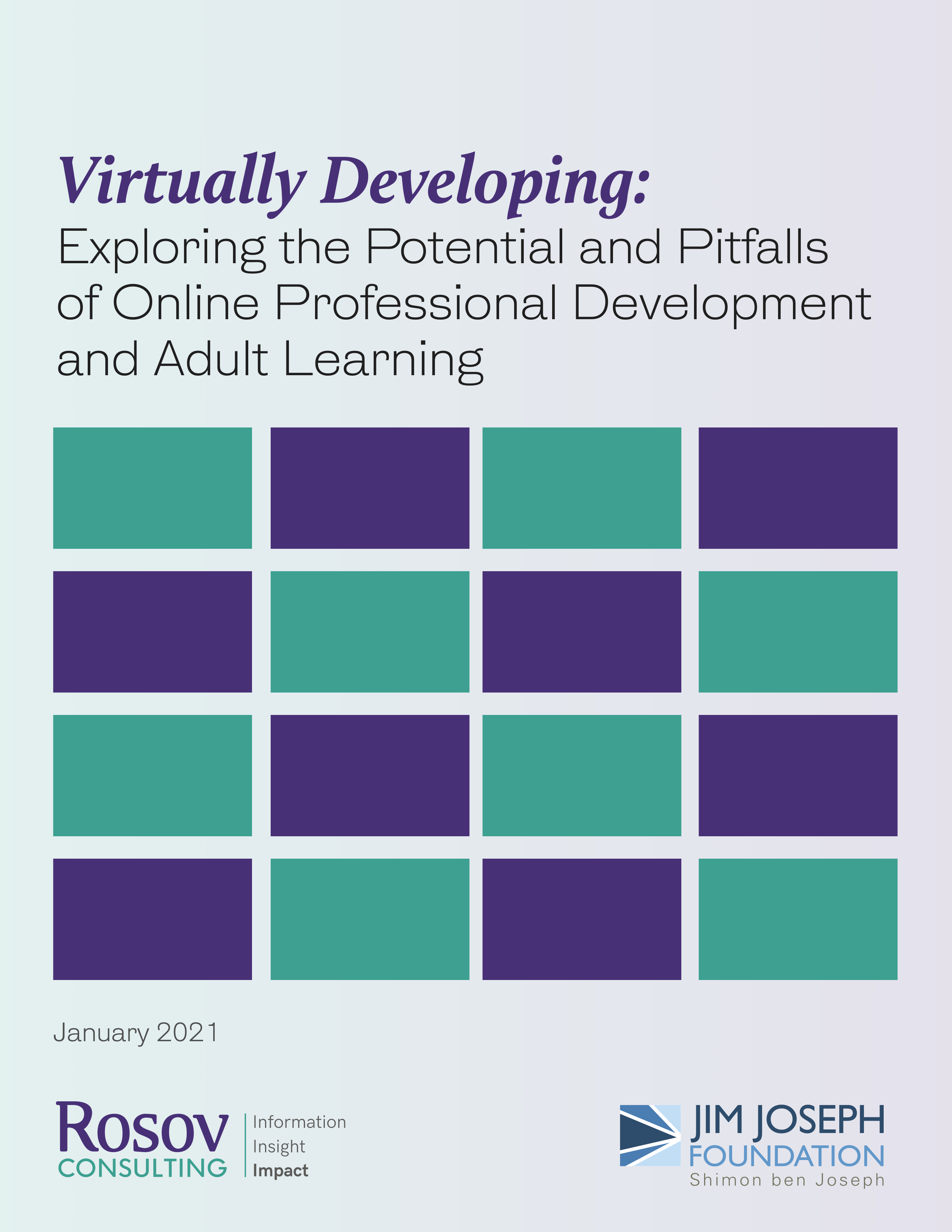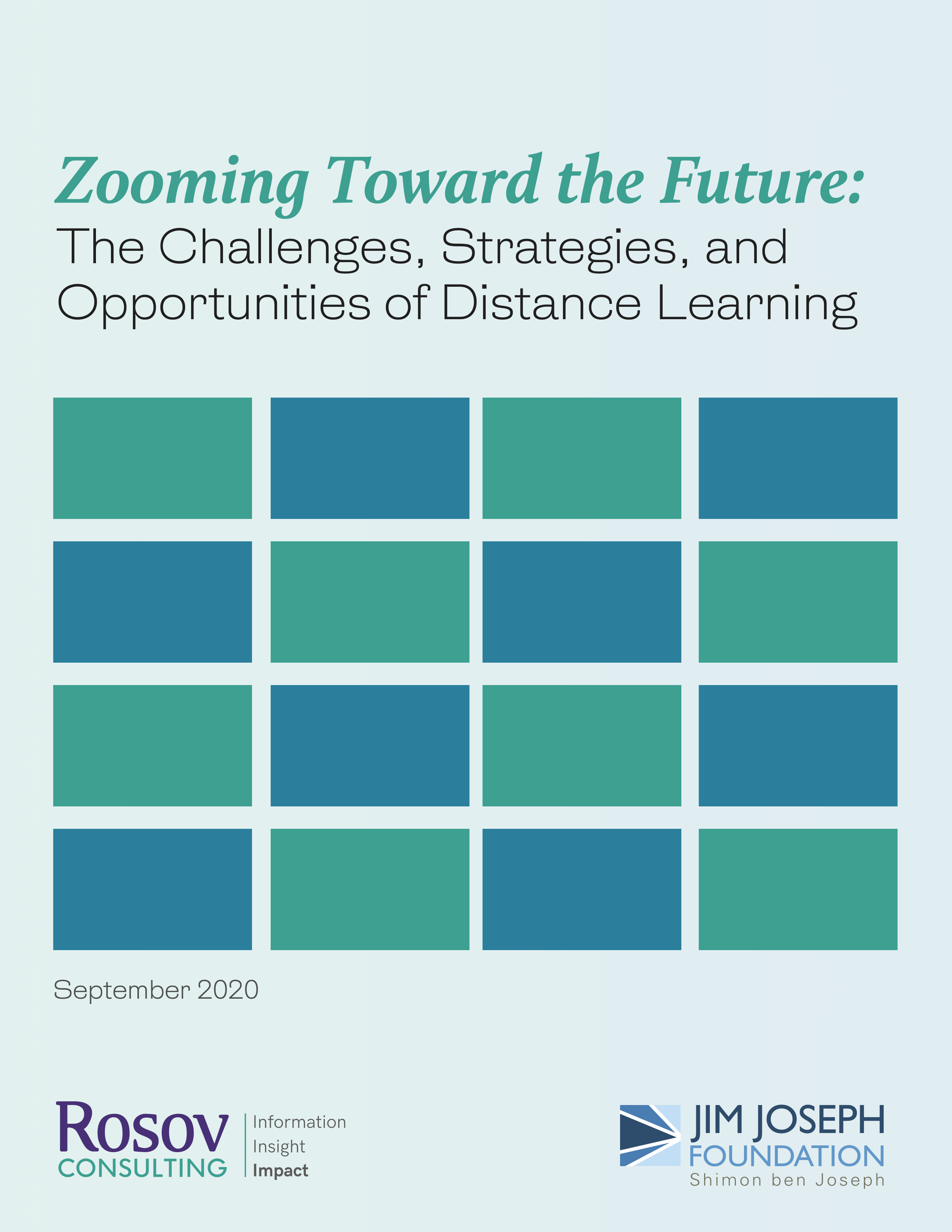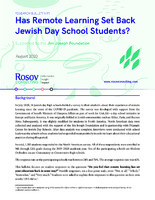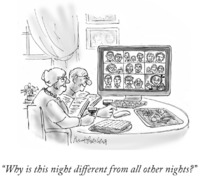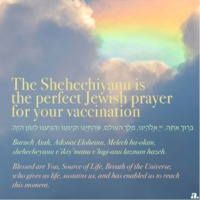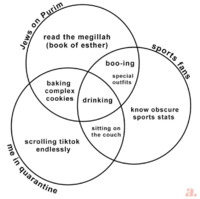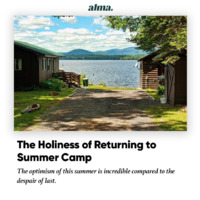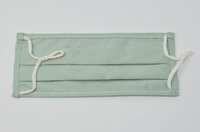Items
The items below are from collecting projects that have partnered with RRCHNM or given permission to index their collections. You can see even more items that have been collected during the pandemic by browsing the websites of specific collecting projects.
-
Politz Day School - Pardes: 7th Grade Covid Reflection
Have you ever wondered what Covid was like in 7th grade at Politz? It started in the middle of 6th grade and went through 7th grade. When it first started, we were learning online. We went on to Zoom every day and had our classes from our homes. When 7th grade started, we were in person but then one week in we had to close for two weeks because someone had symptoms. It was annoying to go back onto Zoom. We were so excited about going back even though we had to wear face masks and be 6 feet apart all the time. When you first get to school, they take our temperatures and our parents fill out a health form making sure we are feeling fine. All these things that we have to do during Covid are annoying but it is worth it to be in school with all our friends. There were many challenges throughout the year. It was very frustrating because the internet would get glitchy and you couldn’t hear the teacher sometimes. The face masks were really hard and sometimes you wanted to rip them off. Covid at school is very difficult but there were some nice things about it. School during, Covid also had its advantages. When we were home, we could wear our pajama bottoms and eat whenever we wanted. We also did not have to wear a mask which gave my face a break. Even at school we were so happy to see our friends, so it was worth it to wear a mask. During the day, when we were busy with work, you kind of forgot that you were wearing a mask and sitting far apart from everyone. We also have these fun robots called Owls and they could show the whole class and it turned to you when you spoke. They helped a lot if you were a virtual learner. It is a fun experience at school during covid. I have learned so many things since Covid. I realized being close to your friends and having playdates and sleepovers was a big part during the school year. I was very grateful that our school was in person for 7th grade and that we didn’t have to be online. I thought that it would be very frustrating to not see my friends for a while but we made it work and I got to see them outside. I think Covid was an experience I will never forget. -
Politz Day School - Lev: 7th Grade Covid Reflection
It was a Friday which we would soon find out to be the last day of school for the rest of the year. My two oldest brothers came home from yeshiva in Connecticut and for the first couple days we thought it was awesome to be on Zoom. Our school days were much shorter and we never were able to pay full attention to class. Very quickly we realized that this was not going to be fun. It was harder for me to learn properly and we weren’t having a good daily schedule. The teachers had a much harder time controlling what we did. Most kids enjoyed being at home and doing what they wanted. We always tried to spend a lot of time outside so our brain wouldn’t fry from looking at a screen all day. When the school was over, we all hoped next year would be back to normal. After a summer that was fun, but a bit different, we were getting ready to prepare for school. I personally wasn’t able to decipher wearing a mask all day. When school started, it was very different and strange. In the beginning of school was very strict with COVID and we even had to quarantine for two weeks because someone came in contact with COVID. Slowly but surely more stuff was allowed like eating snacks during class if socially distanced. So overall there were good things and bad things. The main bad stuff were all the very annoying restrictions, Zoom school, and the worst was wearing masks. The main good stuff was we got to spend much more time as a family, and we went on very memorable trips together. So far, my COVID experience has had its ups and downs, and I hope it ends soon. -
Politz Day School - Naohm: 7th Grade Covid Reflection
Throughout this pandemic life has been challenging in many different ways. In March 2020 Politz shut down due to COVID-19, and for two weeks the students were at home doing nothing. After two weeks of no school, Politz decided to start learning from Zoom. In the beginning we were having fun because we woke up at nine and class started at nine ten. All the kids were enjoying it until around May, when it was getting repetitive and some kids' grades were dropping because it was hard to focus. Personally my grades were going up and I was having a great time. Since school ended at two my mother and I used to go hiking or biking after school, and it felt like I was on vacation everyday. Personally COVID has made my life better and worse because my grandfather passed away but also I got to go on vacation and not have to miss school because there is Zoom. When we returned to school in September 2020 I was really excited to see my friends but when I first saw them it was pretty strange. We caught up on everything and throughout the year we have gotten closer as friends. Since two of our teachers were on Zoom we were kind of annoyed to have to learn through Zoom but we overcame it and we got used to it. In the beginning of the school year masks were really bugging us and we couldn’t stand wearing them especially because you had to social distance. Throughout the school year everyone got used to wearing masks and it was a normal thing to wear. About a month into school we had to learn from home because someone got COVID. It was pretty fun for those two weeks but during that break our ELA teacher/Middle School Principal resigned, it was really sad because she was such a good teacher. For a couple of months we had a substitute teacher until a fantastic ELA teacher came and made everything feel like normal again. Throughout the year we overcame all the tough challenges like wearing a mask, social distancing, Zoom, and especially COVID-19. Overall, this experience has changed my perspective on health issues and I feel pretty special to be a part of history. -
Politz Day School - Yisrael: 7th Grade Covid Reflection
Covid-19 started in March. My friends and I thought it was great to be on Zoom for two weeks. It turned out that we were on Zoom for the rest of the year. It was terrible, we all hated Zoom. It was annoying having to wake up and go onto an iPad. Being on Zoom for the whole day was complete torture, having to look at an iPad when you can go outside and play. We all really enjoyed being on Zoom in the beginning, until it just got annoying to attend class. Sometimes, we couldn’t even speak, because we would just get muted by our teachers. Sometimes, you would get logged off of the meetings, and then you would be marked late for not coming on time. However, one of the greatest things about Corona was that we didn’t have to take finals and Terra Novas. The next school year began and the administration tried to make it a safe environment. We had to start wearing masks and stay in the same classroom all day. One of the worst parts during this time is that for some classes, we come in person to be on Zoom. We also don’t get to have field trips or have speakers come in. However, I am still thankful to have school in person as opposed to being home, on Zoom. It’s great everyday coming in to see my friends as opposed to seeing them on Zoom. My friends and I agree that we probably have the best classroom to be in during this time. We have a big room, with a ping pong table, and have shelves filled with books to read. During Corona there are ups and downs but we are all getting through it together. -
Politz Day School - Racheli: 4th Grade Covid Reflection
It all started in 2020, rumors and stories. all anyone talked about was bats and China. Taking over my life and my family’s life COVID made it hard to be social especially in Las Vegas. With the temperature rising into the high nineties, I didn’t know how I managed to stay outside. School went on Zoom making it hard to learn and concentrate. Could a virus really change my life forever? It did. My family might not have moved to Cherry Hill if not for Covid-19. We were all at home and able to talk to each other about moving. It also would have been very difficult to be away from my friends, but if I was able to be away from them during Corona then I could do it when we moved. My summer plans were changed so I just packed up and played with my sister. Overall, the worst part for me was learning on Zoom. We found out Politz was opening in person. My mother and father were working online. I was excited about being able to see my friends, but there were masks, face shields, and social distancing. At first it was hard for me to follow all of these rules… but I got used to it. It’s been a long year and I hope that the vaccine will solve our problems. Stay safe and healthy. -
Keeping It Cozy: Nourishment Inspo for a Socially Distanced Winter Shabbat
With colder weather comes new opportunities for creativity around the Shabbat dinner table — or Shabbat blanket, Shabbat fire pit, or Shabbat space heater. We’ve compiled a few of our favorite things you can purchase with Nourishment to make hosting outside safe, fun, and festive. -
Sukkot Shabbat: Resilience in the Time of Pandemic
Welcome to Sukkot. This is a holiday that celebrates and lives into the many tensions in our lives. The two traditional roots of Sukkot — the temporary homes the Israelites created during their time of wandering in the Wilderness of Sinai, and the shelters erected in ancient Israel during the fall harvest season — can be said to represent the space between these tensions: the bounty of the summer harvest coupled with the impermanence of the roofs over our heads, radical hospitality coupled with the anxiety of the impending rain that will set the stage for next year’s growing season. During this year of tremendous challenge, as we prepare to bring in Shabbat — the proverbial “Temple in Time” — within the holiday of Sukkot, we honor all of the ways in which we have had to create impermanent shelters that have enabled us to weather the wilderness of the pandemic. We’ve sheltered in place, drawn circles of support during social isolation, cared for our friends and family members, worked in the frontlines of essential work and care, used the spaces in our homes for far more functions than they ever used to need to fill, and likewise used virtual tools for connection to create digital spaces to stand in for the physical spaces we’d otherwise occupy together. So this year as we celebrate Shabbat during Sukkot, let us celebrate ourselves and each other — whether you have a physical Sukkah in your yard, patio, or balcony, or your Sukkah exists only in the metaphysical realm of your imagination, we celebrate the creation of sacred space and time and the opportunity to dwell within its midst. -
Solo Seder: A OneTable Guide
Three days after the United States entered WWI, the National Jewish Welfare Board was founded; among their first large scale projects was the Solo Seder kit. Containing a Haggadah, grape juice, soup mix, and matzah, the kit was shipped to overseas military personnel so that they could celebrate Passover alone. For many, the idea of Seder alone is anathema to everything Passover represents: performance, participation, peoplehood. After all, at the core of the practice is storytelling, ritual, and symbolic reenactment. Don’t these things require an IRL experience? This year, as in 1917 and 2020, the answer for many of us is no. Meaning can be made on your own, with the right intention and the right tools. This is not a Haggadah, but rather a real time supplement that offers first person introductions — poetry, lyrics, mindful reflections — for you to read before each section of the Seder. Choose the Haggadah that works for you, and use this resource to add meaning, set personal intention, and make your Seder of One a testament to the timeliness and power of ritual. -
Seder 2021: A OneTable Guide
For so many, another year of celebrating Passover virtually is deflating, the antithesis of so much of what the Seder represents: performance, participation, peoplehood. After all, at the core of the practice is storytelling, ritual, and symbolic reenactment. Don’t these things require an IRL experience? We now know the answer is no. Meaning can be made virtually and in small groups with the right intention and the right tools. It is with this in mind that we created the OneTable Seder 2021 guide. This is not a Haggadah, rather a gloss, a real time supplement that offers introductions — poetry, lyrics, mindful reflections — to be read aloud before each section of the Seder. Choose a Haggadah works for you, and use this resource to add meaning, set intention, and make your Seder a testament to the timeless power of ritual. -
In Solidarity Around the Shabbat Table
Shabbat is about imagining a better world, and considering the actions we need to take to make that world a reality. Whether Friday night is a time to engage in powerful conversation, or a time to take a break from the work of change-making, this is just the one of many ways we can amplify Black voices at our tables and prepare ourselves for the work — and the world — to come. -
Solo Shabbat Guide
On a sailing trip in 1989 Italian teacher Mauro Morandi encountered a small island nestled between Sardinia and Corsica. Uninhabited save for a caretaker, Morandi was captivated by its beauty and isolation. Soon after, he took over as the island’s guardian and sole inhabitant — and remains there over 30 years later. Alone but not lonely, Morandi reminds us to distinguish between the two. Being alone during this pandemic is life-saving work, and while most of us are not fortunate enough to be alone on a beautiful Mediterranean island, we can all encounter what philosopher Abraham Joshua Heschel calls “an island in time”every week on Friday night. -
The Shabbat Alone, Together Guide
Friday night is an invitation to elevate time and space, and to encounter joy. We have created this dinner guide to support you as you do that alone, together. Whether you are celebrating on your own, virtually with others online, or in person with your housemates, we hope these resources connect you to the experience of Shabbat in a way that is new and — perhaps surprisingly — sacred. -
Alone, Less Lonely - OneTable Solo Shabbat Study
Nearly one year into this worldwide pandemic people are tired, lonely, and tired of being alone. Every day can feel like “blursday.” I have found myself asking, “how close are we to Shabbat?” countless times. OneTable was created to foster strong ties among Jewish young adults through the ritual of Shabbat dinner. Until March 2020, we encouraged groups of 8-12 people to gather - even incentivizing invitations to newcomers. If we have learned anything from this pandemic - it’s that the power of ritual, especially Shabbat, can be life changing (and affirming). And that Shabbat itself is elastic. OneTable participants have taught us that Shabbat can offer that sense of connection, grounding, and even meaningful ties to the community while being totally alone. What you will see in this report is stunning, creative and even joyful solo Shabbat celebration. It is also a testament to the beauty of the intentions we create, and the power of the time we spend, with ourselves. What does this mean for how the community, Jewish and otherwise, serves people who are alone by choice or circumstance? How might we embrace them as a real and substantial part of our diverse community? When we can return to boisterous, crowded gatherings, how will we make space for those looking for quiet reflection and renewal? -
Rhythm, Relationship, Reckoning Report
OneTable was about to embark on a full impact study with Benenson Strategy Group (BSG) when COVID-19 hit. In consultation with the Research Advisory Board, OneTable pivoted to a shorter, faster survey. We wanted to know: How is the OneTable community coping during this crisis? OneTable engaged BSG to field a pulse check survey to our community, and Sacred Design Lab and Designing Empathy to dive deep with journal entries and focus groups for a small sub-group of participants. These two studies were separate, but complementary. This resulting report is very informative and presents a picture of how challenging the virus has been in the lives of young adults. Nearly two thirds of survey participants (65%) know someone who has contracted or died from the virus. As can be expected during a crisis, there is an increased awareness of, and positive feelings toward, participants’ religious identities. Particularly important is their strong sense of being Jewish, and of incorporating Shabbat into their lives more regularly. The report also raised some important questions for us: What resilience underlies our community's feelings of luck and gratitude? What else are they grieving? We need to identify these sources of loss to help us understand what more OneTable can offer them. All of this just underscores to us the value — and implicit message of fostering a Jewish identity — OneTable is bringing to people’s lives. We are so thankful that these participants shared with us so generously, and we are eager to share what they’ve taught us in their own words. Signed, Dr. Barbara Schneider, on behalf of the OneTable Research Advisory Board -
OneTable Coronavirus Impact Study
OneTable was about to embark on a full impact study with Benenson Strategy Group (BSG) when COVID-19 hit. In consultation with the Research Advisory Board, OneTable pivoted to a shorter, faster survey. We wanted to know: How is the OneTable community coping during this crisis? OneTable engaged BSG to field a pulse check survey to our community, and Sacred Design Lab and Designing Empathy to dive deep with journal entries and focus groups for a small sub-group of participants. These two studies were separate, but complementary. This resulting report is very informative and presents a picture of how challenging the virus has been in the lives of young adults. Nearly two thirds of survey participants (65%) know someone who has contracted or died from the virus. As can be expected during a crisis, there is an increased awareness of, and positive feelings toward, participants’ religious identities. Particularly important is their strong sense of being Jewish, and of incorporating Shabbat into their lives more regularly. The report also raised some important questions for us: What resilience underlies our community's feelings of luck and gratitude? What else are they grieving? We need to identify these sources of loss to help us understand what more OneTable can offer them. All of this just underscores to us the value — and implicit message of fostering a Jewish identity — OneTable is bringing to people’s lives. We are so thankful that these participants shared with us so generously, and we are eager to share what they’ve taught us in their own words. -
Thoughts on facing Passover in isolation
Message left on the Jewish History Museum in Tucson's Oral History Hotline -
Virtually Developing: Exploring the Potential and Pitfalls of Online Professional Development and Adult Learning
Introduction: During summer and fall 2020, Rosov Consulting engaged in a multifaceted study of 13 Jewish adult learning and professional development programs that shifted their offerings online due to COVID-19 (nine are part of the Jim Joseph Foundation Professional Development Initiative, four are from other Jim Joseph Foundation grantees). In the first stage of our research, we interviewed program provider about the challenges they faced in moving to online learning, the positive “silver linings” of the virtual experience, and the longer-term impacts of reimagining how they do their work. In the second stage, we explored the experiences of and impacts on program participants through a survey of more than 1,600 participants and followup interviews with 14 of them. The programs included both those specifically for educators and Jewish professionals as well as general adult Jewish learning open to all. We sought to understand the personal and professional impacts of online learning; the strengths and limitations of the experience, particularly as compared to inperson learning; and what facilitates and impedes learning through virtual modalities. -
Zooming Toward the Future: The Challenges, Strategies, and Opportunities of Distance Learning
From the introduction: "To help the Foundation and the field better understand how pivoting to distance learning has unfolded for Jewish education and professional development organizations, Rosov Consulting interviewed nine program providers from the Jim Joseph Foundation PDI cohort, along with five other Jim Joseph Foundation grantees that operate in overlapping fields. The interviews explored the initial choices organizations made and how those choices evolved over time. We investigated the challenges that programs faced when moving online, whether and how they were able to address those challenges, the positive “silver linings” of being forced to reimagine how they do their work, and which dimensions might continue once people can gather in person again.* This report synthesizes the key themes we heard in these conversations, categorized into the challenges programs have faced in the pivot to distance learning, the strategies to overcome them that have proved most effective, and the opportunities (both predictable and surprising) that have emerged from the crisis. We conclude by sharing organizational leaders’ perspectives on how they envision the “new normal” in a post-COVID world." -
Research Bulletin #1: Has Remote Learning Set Back Jewish Day School Students?
Background: In July 2020, 16 Jewish day high schools fielded a survey to their students about their experience of remote learning since the onset of the COVID-19 pandemic. The survey was developed with support from the Government of Israel’s Ministry of Diaspora Affairs as part of work for Unit.Ed—a day school initiative in Europe and Latin America. It was originally fielded in Jewish communities such as Milan, Paris, and Buenos Aires. Subsequently, it was slightly modified for students in North America. North American data were collected and analyzed with the support of the Jim Joseph Foundation and in partnership with Prizmah: Center for Jewish Day Schools. After data analysis was complete, interviews were conducted with school leaders at the schools whose students had responded most positively in order to learn about their educational practices during this period. In total, 1,383 students responded to the North American survey. All of these respondents were enrolled in 9th through 12th grade during the 2019–2020 academic year. Ten of the participating schools are Modern Orthodox; six are Community or Conservative high schools. The response rate at the participating schools was between 24% and 76%. The average response rate was 41%. This bulletin focuses on student responses to the question: “Do you feel that remote learning has set your education back in some way?” Possible responses, on a four-point scale, were: “Not at all,” “A little,” “Somewhat,” and “Very much.” Students were asked to explain their responses to this question in their own words; 1,112 did so. -
"Why is this night different from all other nights?"
A cartoon created by Mort Gerberg for the New Yorker that depicts an elderly couple on a Passover seder zoom call with many members of their family. The caption reads, "Why is this night different from all other nights?" -
The Perfect Jewish Prayer for Your Vaccination
An article written by Sarah Flores Shannon for Alma entitled "The Perfect Jewish Prayer for Your Vaccination." Image description via Alma's instagram: Image of a rainbow peeking through clouds. Text reads "The Shehechiyanu is the perfect Jewish prayer for your vaccination," with the Hebrew, transliteration, and English text: בָּרוּךְ אַתָּה, יְיָ אֱלֹהֵינוּ, מֶלֶךְ הָעוֹלָם, שֶׁהֶחֱיָנוּ וְקִיְּמָנוּ וְהִגִּיעָנוּ לַזְּמַן הַזֶּה. Baruch Atah, Adonai Eloheinu, Melech ha-olam, shehecheyanu v’ikiy’manu v’higi-anu lazman hazeh. Blessed are You, Source of Life, Breath of the Universe, who gives us life, sustains us, and has enabled us to reach this moment. -
Purim, Quarantine, and Sports Venn Diagram
Alma's (@hey.alma) instagram caption: You're gonna look at us and tell us that we're wrong??? Image description: A three-circle venn diagram. One circle is "Jews on Purim," another is "sports fans" and last is "me in quarantine." The overlap between all three is "drinking," between Purim/sports is "boo-ing" and "special outfits," between Purim/quarantine is "baking complex cookies," and between quarantine/sports is "sitting on the couch." Unique to Purim is "read the megillah [book of esther]," to sports is "know obscure sports stats" and quarantine is "scrolling tiktok endlessly." Whew, describing venn diagrams is TOUGH. -
The Holiness of Returning to Summer Camp
An article written by Eva Grossman for Alma entitled "The Holiness of Returning to Jewish Summer Camp." -
Miriam's Legacy Will Get Us Through the Pandemic
An article written by Arielle Kaplan for Alma entitled "Miriam's Legacy Will Get Us Through the Pandemic." -
The Bat Mitzvah of Theodora Foer
(2021.19.01) The mint-colored mask worn by Theodora Foer during her Bat Mitzvah. Theo wore the mask and had her service in her grandparent's backyard due to the COVID-19 pandemic. Oct. 2020. Gift of Esther Foer. (2021.19.02) The light blue Kippah worn by Theodora Foer during her Bat Mitzvah. Gold lettering on interior of Kippah reads "Bat Mitzvah of Theodora Foer October 3, 2020" Gift of Esther Foer. (2021.19.03) Theodora Foer and Rabbi Lauren Holtzblatt put on their tallitot (prayer shawls) during Theo's bat mitzvah service. The bat mitzvah was held in the backyard of Theo's grandparents, Esther & Bert Foer, due to the COVID-19 Pandemic. Oct. 2020. Gift of Esther Foer.
